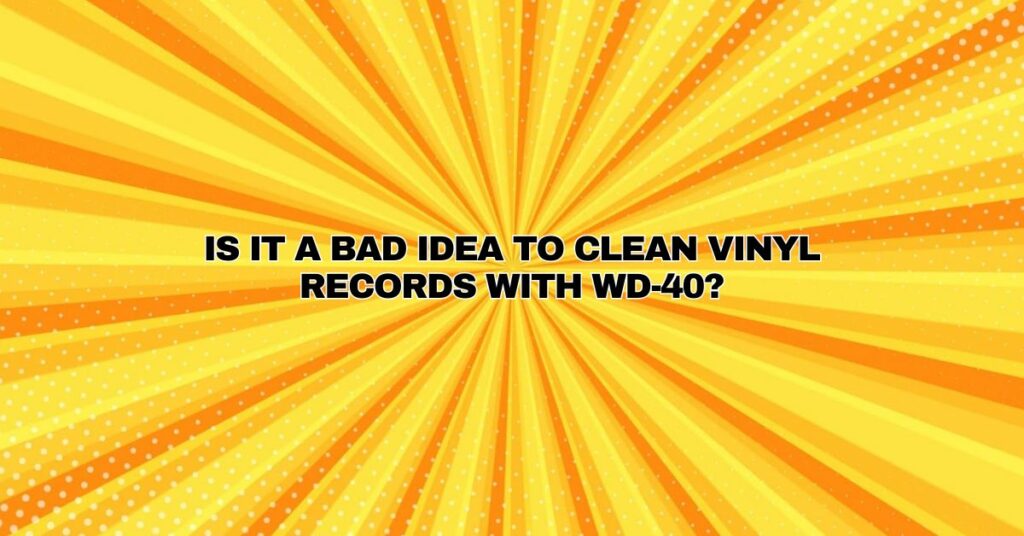Vinyl records, with their analog charm and immersive sound, have been cherished by audiophiles and music enthusiasts for decades. Proper maintenance and cleaning are essential to ensure that your vinyl collection remains in pristine condition. However, the idea of using WD-40 as a cleaning agent for vinyl records has gained some attention. In this article, we will explore the potential risks and consequences of using WD-40 to clean vinyl records, as well as alternative methods and products that are safer and more suitable for preserving the integrity of your precious records.
1. The Appeal of Vinyl Record Cleaning
Vinyl records are delicate analog artifacts that require meticulous care to maintain their sound quality and longevity. Cleaning vinyl records serves several crucial purposes:
- Dust and Debris Removal: Records accumulate dust, dirt, and microscopic particles that can affect playback and sound quality.
- Static Reduction: Reducing static electricity helps prevent dust and debris from clinging to the record surface.
- Surface Cleaning: Removing fingerprints, smudges, and oils from handling ensures that the stylus tracks smoothly.
2. The Myth of WD-40
WD-40 is a versatile lubricant and cleaning product known for its ability to loosen rusted parts, lubricate hinges, and displace moisture. Some individuals have mistakenly considered WD-40 as a potential solution for cleaning vinyl records due to its cleaning properties.
3. The Risks of Using WD-40 on Vinyl Records
Using WD-40 to clean vinyl records poses several significant risks and drawbacks:
- Chemical Residue: WD-40 leaves behind a chemical residue that can be difficult to remove from the record surface. This residue can adversely affect sound quality and stylus performance.
- Stylus Damage: WD-40 residue can accumulate on the stylus (needle), potentially leading to tracking errors and damage to both the stylus and the grooves.
- Long-Term Damage: Over time, the chemical residue can penetrate the vinyl material, potentially causing irreversible damage and degradation.
- Sound Quality Degradation: The use of WD-40 can result in a noticeable decrease in sound quality, including increased surface noise and distortions.
4. Safe Alternatives for Vinyl Record Cleaning
To maintain the integrity of your vinyl records and ensure optimal sound quality, consider safe and effective alternatives for cleaning:
- Carbon Fiber Brushes: Anti-static carbon fiber brushes are designed to gently remove dust and debris from the record surface without leaving any residue.
- Record Cleaning Solutions: Specialized record cleaning solutions, when used with a soft microfiber cloth or a record cleaning brush, effectively remove dirt and oils without harming the vinyl.
- Record Cleaning Machines: Professional-grade record cleaning machines use a combination of cleaning solution and vacuum suction to deep-clean records without leaving residue.
5. Conclusion
Cleaning vinyl records is a vital part of preserving their sound quality and longevity. However, the use of WD-40 as a cleaning agent for vinyl records is not only ineffective but also potentially harmful. WD-40 leaves behind a chemical residue that can damage records, degrade sound quality, and harm the stylus.
To ensure the safe and effective cleaning of your vinyl records, it is strongly recommended to use purpose-designed cleaning products and methods that are specifically engineered for vinyl record maintenance. By following best practices for record cleaning, you can enjoy your vinyl collection with optimal sound quality and protect your valuable records for years to come.


